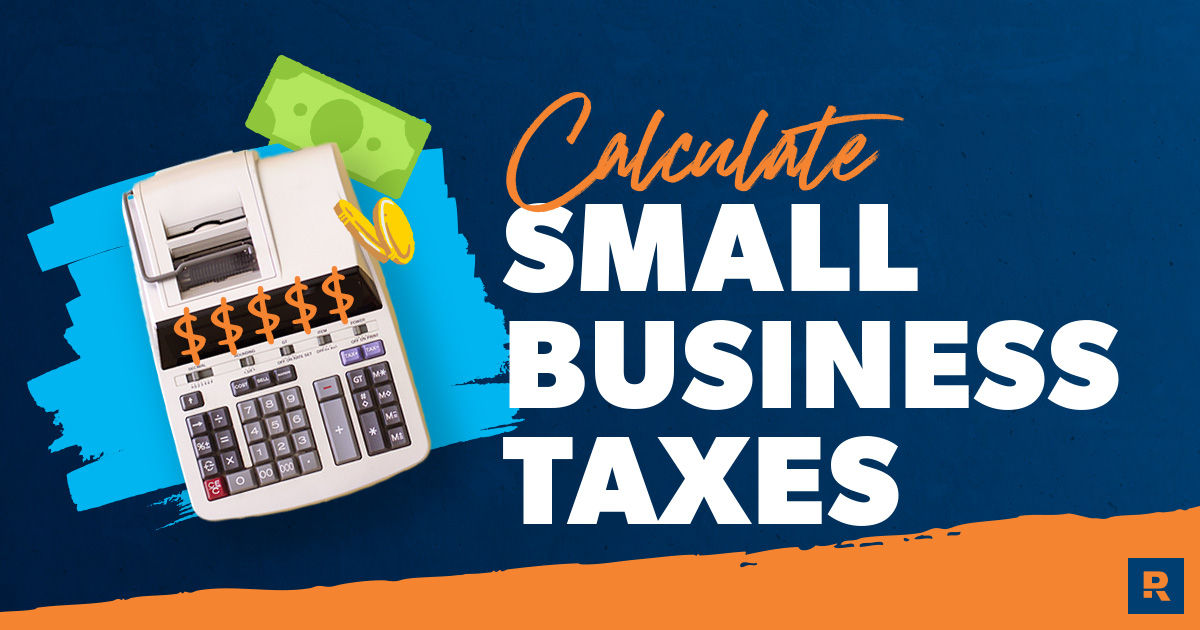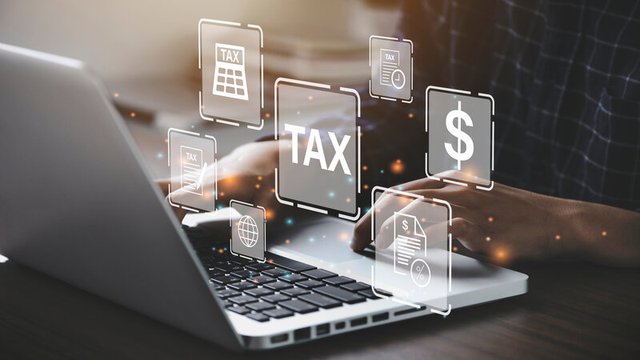Understanding business taxes is crucial for any entrepreneur. Taxes impact your profits and legal compliance.
Navigating the world of business taxes can be daunting. Whether you run a small startup or a large corporation, knowing the basics of business taxes is essential. They include various types, from income tax to payroll tax, and each has its own rules.
Mismanaging taxes can lead to hefty fines and legal issues. This guide will help demystify business taxes, providing you with the knowledge to keep your business compliant and financially healthy. Stay tuned as we explore the key aspects of business taxes. By the end, you’ll feel more confident in managing your business’s tax responsibilities.
Credit: daniabeachfl.gov
Introduction To Business Taxes
Understanding business taxes is crucial for any entrepreneur. Taxes influence every financial aspect of a business. From cash flow to profit margins, they play a significant role. Knowing how to manage them can make or break a company. This guide provides an introduction to business taxes.
Importance Of Tax Planning
Effective tax planning is essential for business success. It helps you comply with tax laws. Planning reduces your tax liabilities. It also maximizes potential deductions. This means more money remains in your business. Proper tax planning can lead to better financial decisions. It aids in budgeting and forecasting.
Common Tax Challenges
Many businesses face common tax challenges. Filing taxes can be complex. Mistakes can lead to penalties. Understanding deductions and credits is often confusing. Keeping accurate records is another challenge. Many businesses struggle with this. Tax laws change frequently. Keeping up with these changes is hard. Seeking professional help is often necessary.
Types Of Business Taxes
Understanding business taxes is crucial for every entrepreneur. Business taxes can impact your profits and operations. Knowing the types of business taxes can help you manage them effectively.
Income Tax
Income tax is charged on the income earned by your business. This includes profits after deducting expenses. All businesses must file income tax returns annually. It ensures compliance with tax laws. Small businesses, partnerships, and corporations have different rates and regulations. Consult a tax professional for accurate filing.
Payroll Tax
Payroll tax is levied on wages paid to employees. Employers must withhold payroll taxes from employees’ paychecks. This includes Social Security and Medicare taxes. It also covers federal and state unemployment taxes. Payroll taxes fund social services and benefits. Proper payroll management is essential to avoid penalties.
Sales Tax
Sales tax applies to the sale of goods and services. Businesses must collect sales tax from customers. The tax rate varies by state and locality. Sales tax must be remitted to the state tax authority. Keeping accurate records helps manage sales tax obligations. Exemptions and special rules may apply to certain products.
Organizing Financial Records
Staying on top of your business taxes can be a daunting task. However, organizing your financial records can make the process much smoother. By keeping everything in order, you’ll save time and reduce stress when tax season rolls around. Plus, well-organized records can help you make better financial decisions throughout the year.
Tracking Expenses
Tracking your expenses is the backbone of maintaining good financial records. You need to know where your money is going to manage it effectively.
Consider using accounting software to categorize your expenses. This can help you spot trends and make adjustments. For instance, you might find that you’re spending too much on office supplies and need to cut back.
If you’re not ready for accounting software, a simple spreadsheet can work wonders. Record each expense as it happens. This keeps you aware of your spending and prepares you for tax deductions.
Maintaining Receipts
Receipts are proof of your business expenses. Keeping them organized is crucial for your financial records.
Digitalize your receipts to save space and make retrieval easier. Use apps to scan and categorize them. This can also back them up in the cloud, reducing the risk of loss.
Set up a routine to handle receipts. Whether it’s daily or weekly, make sure you review and file them regularly. This habit will make your tax preparation much more manageable.
Have you ever scrambled to find a receipt when you needed it most? By keeping them organized, you can avoid such stressful situations. Your future self will thank you.
Identifying Deductible Expenses
Identifying deductible expenses helps businesses save on taxes. Common deductible expenses include office supplies, travel costs, and employee salaries. Keeping detailed records is essential.
Identifying Deductible Expenses Understanding what counts as deductible expenses can save your business a significant amount of money. Knowing where to look can simplify your tax season. Let’s dive into some key areas where you might find deductible expenses.
Office Supplies
Office supplies are essential for the daily operations of any business. Items like pens, paper, printer ink, and even software subscriptions can be written off. Keep all receipts and categorize them properly. It might surprise you how quickly these small expenses add up.
Travel Expenses
Travel expenses can be a bit tricky. It’s important to differentiate between personal and business travel. Flights, hotels, and meals during business trips are deductible. However, be honest and transparent about your travel. Claiming expenses for a vacation disguised as a business trip can lead to trouble.
Employee Benefits
Offering benefits to your employees is a win-win. Not only do you attract top talent, but many of these benefits are deductible. Health insurance, retirement plans, and even some education expenses qualify. Think about the perks you provide and check if they can be deducted. This can make offering benefits more affordable. Are you missing out on these deductions? Keep track of all these expenses and consult with a tax professional to maximize your savings.
Home Office Deduction
The home office deduction can offer significant tax savings for business owners. Working from home allows you to deduct certain expenses related to your home office. This deduction reduces your taxable income, meaning you pay less in taxes.
Eligibility Criteria
To qualify for the home office deduction, you must use part of your home exclusively for business. This space must be your principal place of business or where you meet clients. You can also qualify if your office is in a separate structure on your property.
You must use this space regularly for business activities. Occasional or incidental use does not meet the criteria. The space should not be used for personal activities. These rules apply whether you own or rent your home.
Calculation Methods
There are two methods to calculate the home office deduction: the simplified method and the actual expense method. The simplified method allows you to deduct $5 per square foot of your home office, up to 300 square feet. This method is straightforward and requires minimal record-keeping.
The actual expense method involves calculating your home office expenses in detail. This includes mortgage interest, rent, utilities, insurance, and repairs. You then multiply these expenses by the percentage of your home used for business. This method can lead to a larger deduction but requires more detailed records.
Choose the method that best suits your situation. Both methods offer valuable tax savings. Consider consulting a tax professional to ensure you maximize your deduction.

Credit: www.ramseysolutions.com
Vehicle Expense Deductions
When running a business, managing expenses efficiently is crucial. One area where you can save money is through vehicle expense deductions. These deductions can significantly reduce your taxable income, helping you keep more of your hard-earned money. Let’s dive into two popular methods for claiming these deductions: the Actual Expense Method and the Standard Mileage Rate.
Actual Expense Method
The Actual Expense Method allows you to deduct the actual costs of operating your vehicle for business purposes. This includes expenses like gas, oil, repairs, insurance, and depreciation. If you use this method, it’s essential to keep detailed records of all your vehicle-related expenses.
To illustrate, imagine you’re a freelance photographer who travels frequently for work. You can deduct the costs for gas and maintenance, making sure to separate business trips from personal ones. This method can be time-consuming but often results in larger deductions.
Have you ever wondered if keeping all those receipts is worth it? The answer depends on your business’s specific circumstances. If your vehicle-related expenses are high, the Actual Expense Method might be the best choice for you.
Standard Mileage Rate
The Standard Mileage Rate is a simpler method where you deduct a fixed rate per mile driven for business purposes. The IRS sets this rate annually, making it easy to calculate your deductions. In 2023, the rate is 65.5 cents per mile.
Imagine you’re a real estate agent who drives 10,000 miles a year showing properties. Using the Standard Mileage Rate, you’d multiply 10,000 miles by 65.5 cents, resulting in a $6,550 deduction. This method is straightforward and requires less record-keeping.
Which method works best for you? Consider the amount of driving you do and the costs associated with your vehicle. If your expenses are relatively low, the Standard Mileage Rate might be the easiest and most efficient option.
Choosing between the Actual Expense Method and the Standard Mileage Rate depends on your individual situation. Both methods offer ways to save money, but the right choice varies. Keep detailed records and consult with a tax professional to make the most informed decision.
Hiring A Tax Professional
Hiring a tax professional can make a big difference for your business. Taxes are complex, and the rules change often. A tax professional helps you navigate these complexities with ease. They ensure your business stays compliant and avoids penalties.
Benefits Of Professional Help
Professional tax help offers many advantages. First, they save you time. You can focus on running your business while they handle the taxes. Second, they know the latest tax laws. This ensures you get all the deductions and credits you deserve. Third, they reduce the risk of errors. Mistakes on your taxes can be costly. A professional ensures everything is accurate.
Another benefit is peace of mind. Knowing an expert handles your taxes reduces stress. They also offer valuable advice. This helps you make informed financial decisions for your business. Finally, they can represent you in case of an audit. Having a professional on your side makes the process smoother.
Choosing The Right Expert
Selecting the right tax professional is crucial. Start by checking their credentials. Ensure they have the proper certifications. Look for a CPA, tax attorney, or an enrolled agent. These professionals have passed rigorous exams and have the necessary skills.
Next, consider their experience. Choose someone who has worked with businesses like yours. This ensures they understand your specific needs. Check their references. Talk to other business owners who have used their services. This gives you an idea of their reliability and expertise.
Finally, discuss their fees. Understand how they charge for their services. Some charge by the hour, while others have flat fees. Make sure their rates fit within your budget. Also, ensure they offer the services you need. Some may specialize in certain areas of tax law. Choose someone who meets all your requirements.

Credit: universidadeuropea.com
Tax Filing Tips
Maximize your business tax savings by keeping accurate records and staying organized throughout the year. Consult a tax professional for complex deductions. Regularly review tax laws to ensure compliance.
Filing business taxes can be a daunting task for many entrepreneurs. But with a few helpful tips, the process can become more manageable and less stressful. Let’s explore some essential tax filing tips that can save you time and possibly even some money. ###
Deadlines And Extensions
Staying on top of deadlines is crucial. Business tax deadlines vary depending on the type of entity you operate. For example, partnerships and S corporations typically file by March 15, while sole proprietors and C corporations have until April 15. Mark these dates on your calendar to avoid late filing penalties. If you can’t meet these deadlines, you can request an extension. However, remember that an extension to file doesn’t mean an extension to pay. You still need to estimate and pay any taxes owed by the original deadline to avoid interest and penalties. ###
Avoiding Common Mistakes
Many business owners make simple mistakes that can cost them. One common error is entering incorrect information on tax forms. Double-check all entries for accuracy, especially your Employer Identification Number (EIN) and financial figures. Another mistake is neglecting to report all income. Ensure you include earnings from all sources, even if they seem insignificant. Overlooking this can raise red flags with the IRS and lead to audits. Missing out on deductions is another pitfall. Keep track of all business expenses throughout the year. Use accounting software or hire a professional to ensure you don’t miss out on any valuable deductions. Have you ever found tax filing overwhelming? Share your experiences and tips in the comments below!
Staying Compliant
Ensure your business stays compliant by properly managing taxes. Accurate records and timely payments help avoid penalties. Maintain a good standing with tax authorities.
Staying compliant with business taxes is essential for any entrepreneur. Navigating tax laws can be daunting, but understanding them is crucial. Being proactive and prepared can save you from potential headaches and financial penalties.
Understanding Tax Laws
Business tax laws vary depending on your location and industry. It’s important to familiarize yourself with the specific laws that apply to your business. Consulting a tax professional can provide clarity and ensure you are on the right track. They can offer insights that you might not find easily online. Regularly review updates to tax laws. Laws can change frequently, and staying informed will help you avoid unintentional non-compliance.
Preparing For Audits
Audits can be stressful, but preparation can make the process smoother. Keep detailed and organized records of all your transactions. Use accounting software to track expenses and revenues accurately. This can simplify your record-keeping and make information retrieval easier during an audit. Conduct internal audits periodically. This will help you identify any discrepancies early and rectify them before an official audit. Have a plan in place for when auditors come knocking. Knowing what documents to have readily available can speed up the process and reduce stress. Remember, staying compliant is not just about avoiding penalties. It’s about ensuring your business operates smoothly and sustainably. Are you confident in your current tax practices? If not, it might be time to reassess and take action.
Frequently Asked Questions
What Taxes Do A Business Pay?
Businesses pay various taxes including income tax, sales tax, payroll tax, and property tax. Each type depends on the business structure and location.
What Taxes Does An Llc Pay In Texas?
An LLC in Texas pays federal taxes based on its classification. Texas does not impose state income tax on LLCs. The LLC may owe franchise tax.
How Do Small Businesses Do Taxes?
Small businesses file taxes by tracking income and expenses, using accounting software, and consulting with a tax professional.
Do I File My Llc And Personal Taxes Together?
No, you do not file your LLC and personal taxes together. LLCs typically file taxes separately, depending on the business structure.
Conclusion
Understanding business taxes is crucial for every entrepreneur. Taxes impact your bottom line. Proper planning can save money and avoid penalties. Always stay updated with tax laws. Consult a tax professional when needed. This ensures compliance and maximizes benefits. Keep accurate records throughout the year.
This simplifies the tax filing process. Remember, informed decisions lead to business success. Stay proactive and manage your taxes wisely.



